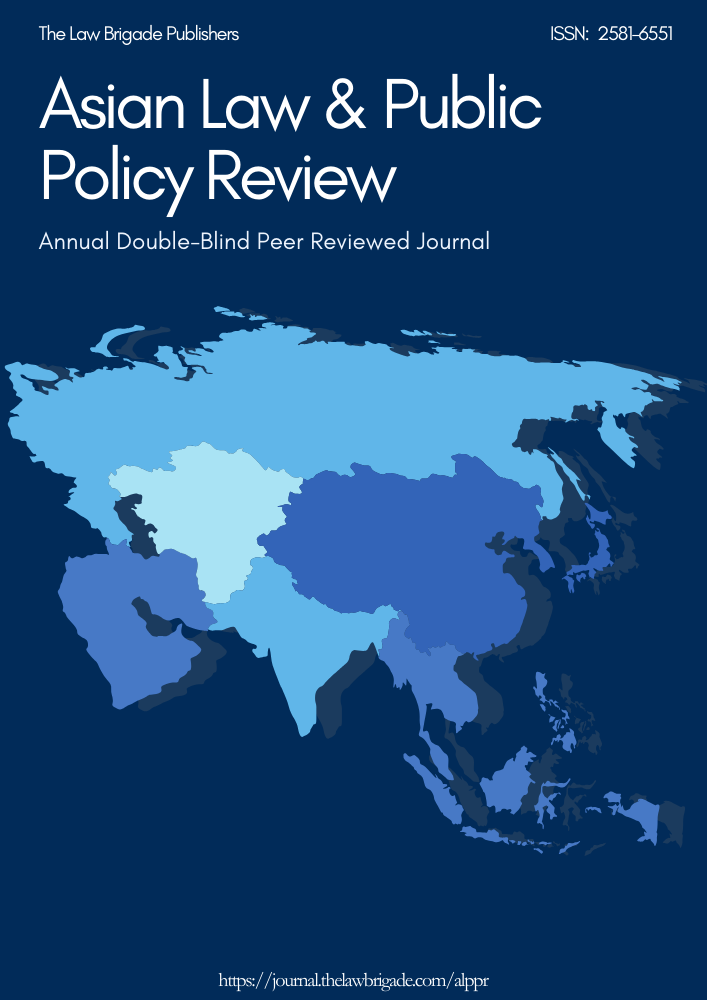NARCO ANALYSIS: WEAPON OF POWER OR TOOL FOR ABUSE?
Keywords:
NARCO, crime, forensic techniques,Abstract
In each and every part of the world, there is the commission of crime it is not just today but since the origin of human. With the advancement of commission of crimes there needs to be advancement in the forensic techniques such that there would be strong evidences and it would punish the accused for delivering the justice. Thus, one of the kinds of forensic techniques for identifying the causation of crime would be Narco Analysis, Brain mapping, DNA Analysis, etc., which with the help of forensic experts could help the investigating authorities, to collect the evidences and understand the stages of commission of crime. Though this technique aids the investigation process, it would support the case and punish the accused, otherwise if there are no evidences then the case won’t be solved in proper manner. From all these various forensic techniques, this paper aims at understanding whether the Narco Analysis Test is a weapon of power which it sets the judiciary in motion and punish the right person. Therefore, in this paper the author has made an attempt in explaining the meaning of Narco Analysis test, origin of this test, its objectives, the medical aspects of the test, Success rate of this test, its admissibility in the court, its constitutional and evidentiary value, application of this test in USA and UK and at last its Advantages and Disadvantages along with the Suggestions for improvement under this technique.
Downloads
References
• Hanscom CB. Narco Interrogation. Journal of forensic sciences. 1956; 1:37-45. 5S.
• Monika G. Narco analysis in light of constitutional law and human rights. IJMER.
2013; 1(2):158.
• Muehlberger CW. ‘Interrogation under Drug-influence: The so-called Truth serum
technique’, The Journal of Criminal Law, Criminology and Police Science (Nov- Dec),
1951; 42(4): 513-528
• Jagadeesh N. Narco analysis leads to more questions than answers, Indian Journal of
Medical Ethics. Jan-Mar 2007; 4(1): 3-9
• SriramLaxman. We need to talk on narco analysis, The Hindu, op-ed page, 2007, May
2.
• Mac Donald JM. Narco-Analysis and Criminal Law, A.M.J. Psychiatry. 1954; 111:283.
• Kalvakota Srinivas Rao. Narco-Analysis ALTJ 14, 2008. 7. Lakshman Sriram. Narco
analysis and hard facts. 24 Frontline 97, 2007.
• Naresh Kumar, Ved Pal Singh. Narco analysis Test in investigation process. Law and
Judicial XIV, MDU, Law Journal. 2009; 108.
• David RS. Scientific techniques in crime investigation, New York publication, 234.
• https://www.lawctopus.com/academike/scientific-evidence-narcoanalysis/
• https://www.lawctopus.com/academike/scientific-evidence-narcoanalysis/
• https://www.ncbi.nlm.nih.gov/pmc/articles/PMC3171915/
15. http://www.legalserviceindia.com/article/l375-Article-20-(3)-Of-Constitution-ofIndia- And-Narco-Analysis.html
Downloads
Published
Issue
Section
License

This work is licensed under a Creative Commons Attribution-NonCommercial-ShareAlike 4.0 International License.
License Terms
Ownership and Licensing:
Authors of research papers submitted to any journal published by The Law Brigade Publishers retain the copyright of their work while granting the journal specific rights. Authors maintain ownership of the copyright and grant the journal the right of first publication. Simultaneously, authors agree to license their research papers under the Creative Commons Attribution-ShareAlike 4.0 International (CC BY-SA 4.0) License.
License Permissions:
Under the CC BY-SA 4.0 License, others are permitted to share and adapt the work, even for commercial purposes, provided that appropriate attribution is given to the authors, and acknowledgment is made of the initial publication by The Law Brigade Publishers. This license encourages the broad dissemination and reuse of research papers while ensuring that the original work is properly credited.
Additional Distribution Arrangements:
Authors are free to enter into separate, non-exclusive contractual arrangements for distributing the published version of the work (e.g., posting it to institutional repositories or publishing it in books), provided that the original publication by The Law Brigade Publishers is acknowledged.
Online Posting:
Authors are encouraged to share their work online (e.g., in institutional repositories or on personal websites) both prior to submission and after publication. This practice can facilitate productive exchanges and increase the visibility and citation of the work.
Responsibility and Liability:
Authors are responsible for ensuring that their submitted research papers do not infringe on the copyright, privacy, or other rights of third parties. The Law Brigade Publishers disclaims any liability for any copyright infringement or violation of third-party rights within the submitted research papers.


